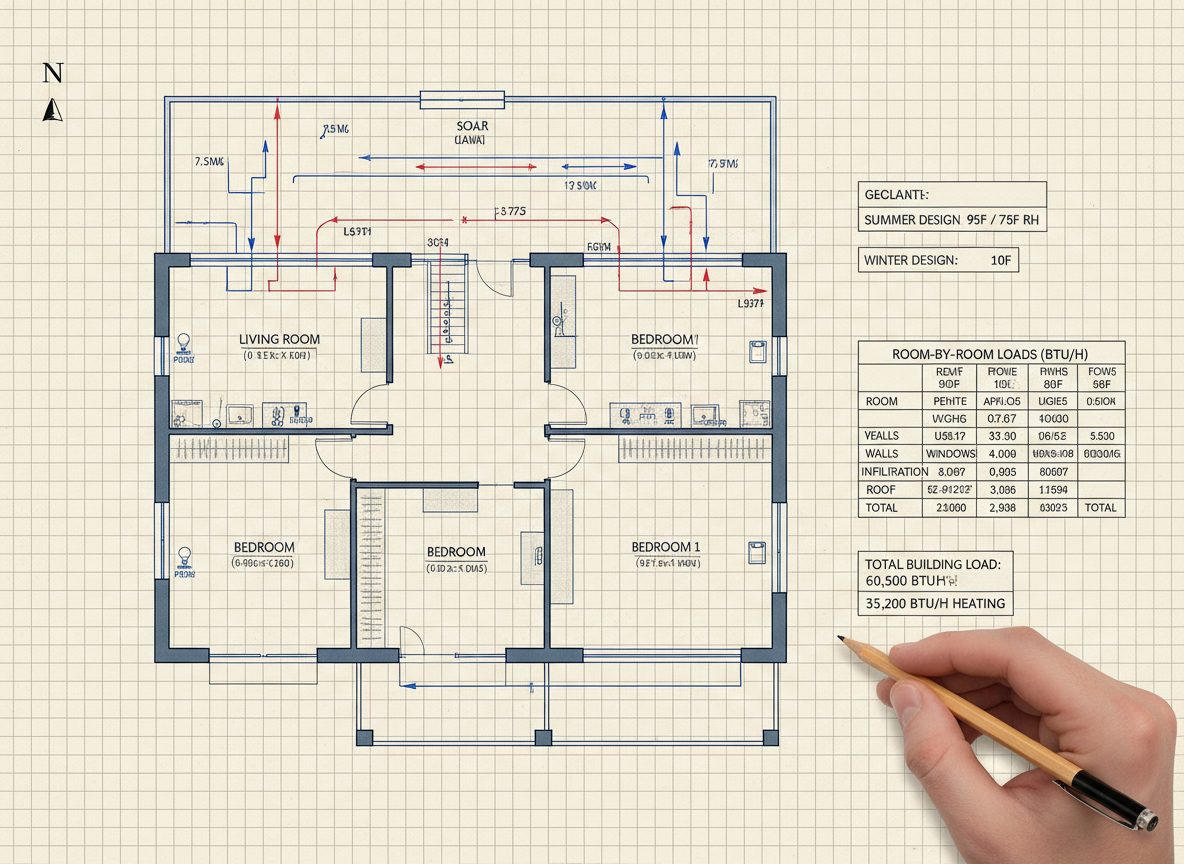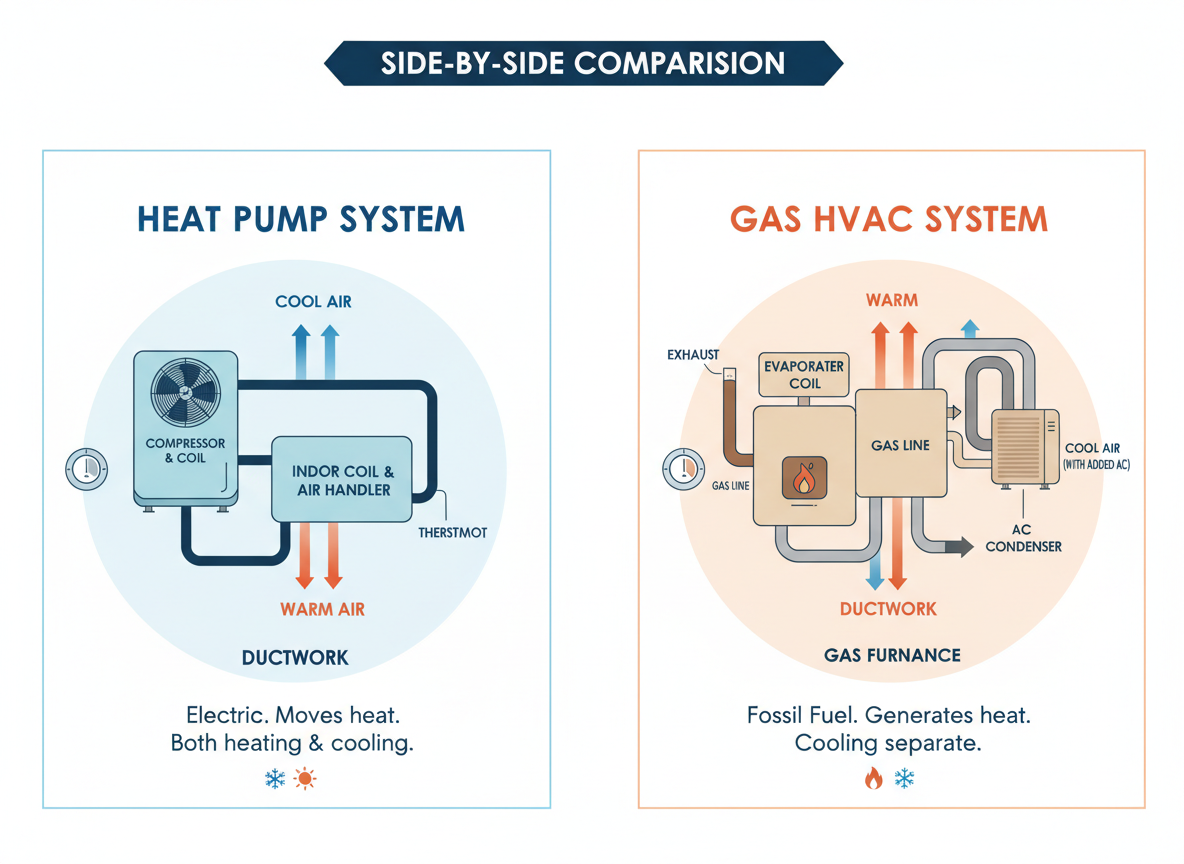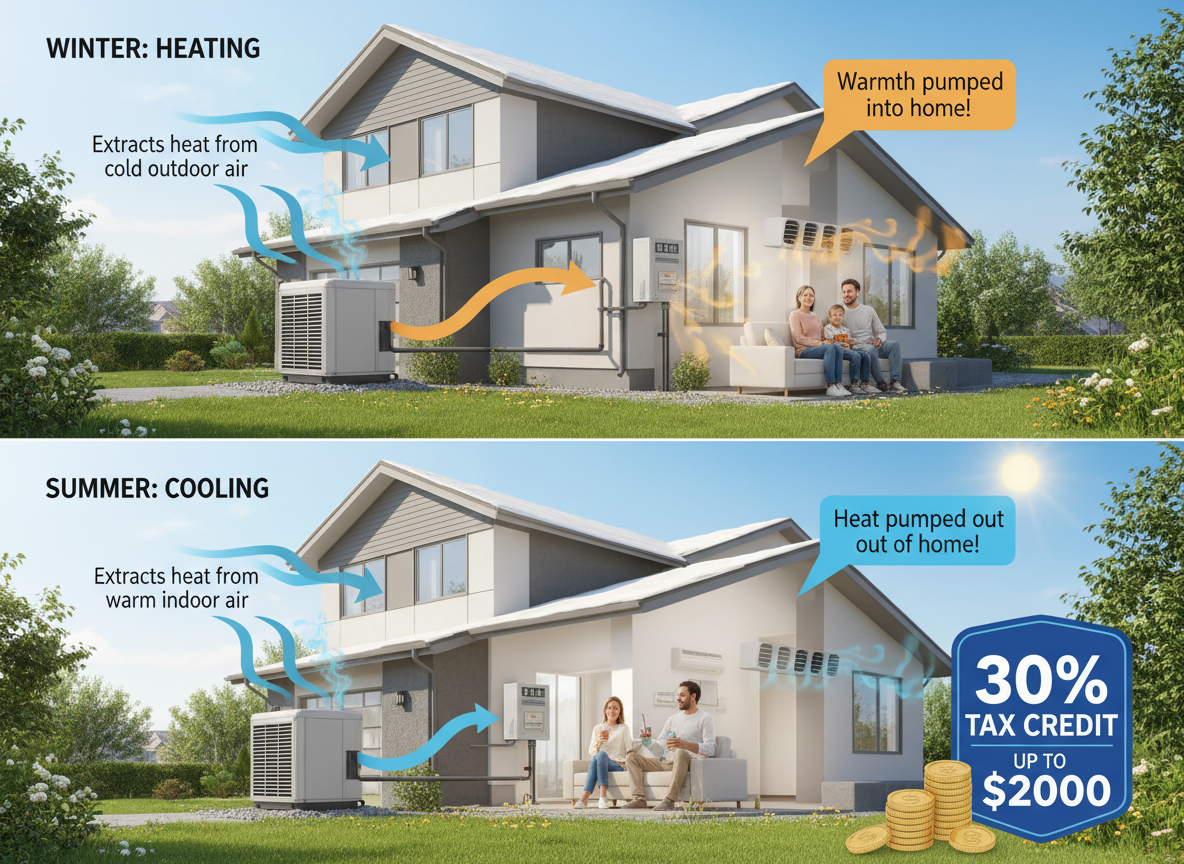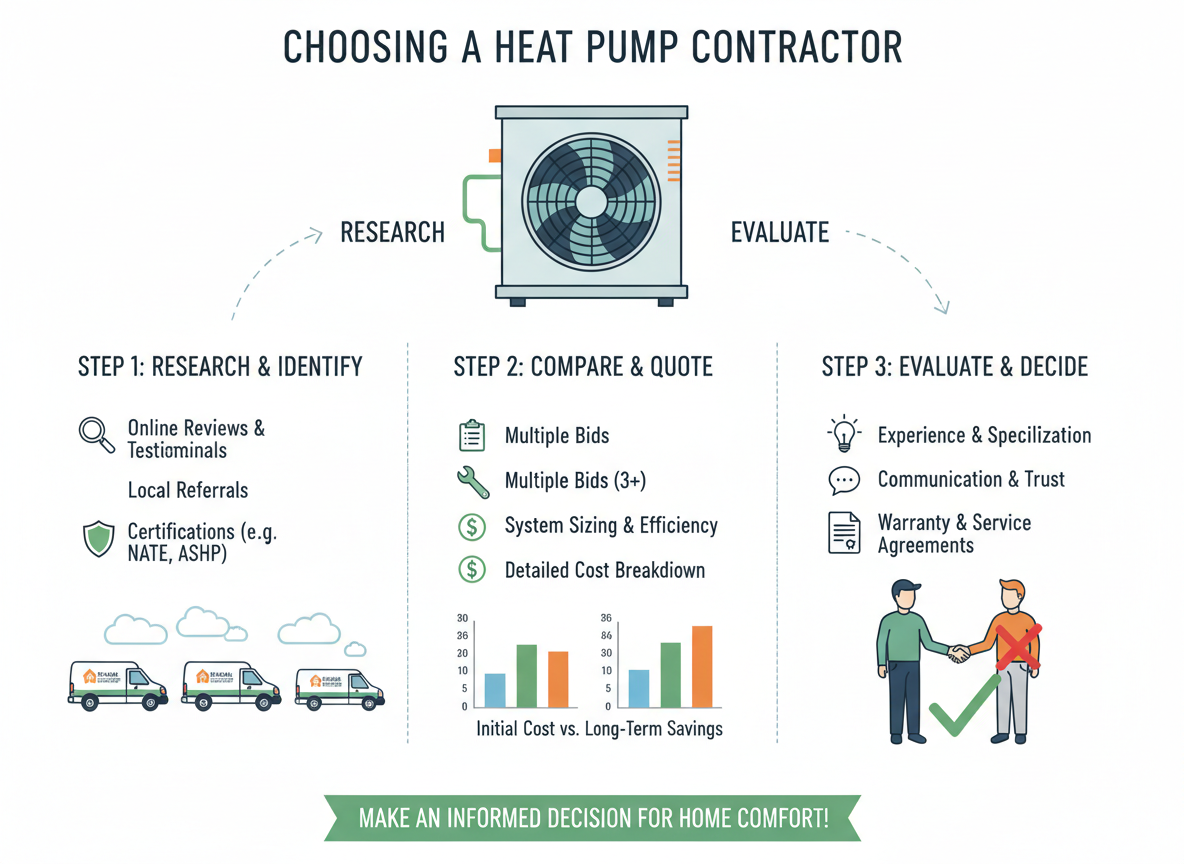
California homeowners have many different options for heating their homes. The two main types of heating systems are furnaces and heat pumps. Choosing the right one for your home maybe confusing if you do not know the differences between the two. To help you choose and make your decision as informed as possible we will discuss the differences between the two.
Gas Furnaces
The most common type of heating system in California homes are gas furnaces. A furnace creates heat by burning natural gas or oil before it blows it into your home through ductwork. The main components of a furnace are the burner which burns the fuel, the heat exchanger responsible for transferring the heat, the blower fan which distributes the heat in your home and lastly the flue which is the exhaust for the gas by-products.
There are also some furnaces that are powered by electricity. Older gas furnaces are highly inefficient but modern models make them up to 98 percent efficient. This efficiency rating means only 2 percent of the burned fuel escapes to the exterior. Unlike heat pumps, gas furnaces still work even in freezing temperatures and require no backup heat source.
However, keep in mind that their efficiency does not compare to heat pumps. Furthermore, with gas furnaces there are fire and CO poisoning risks. To keep a safe furnace routine maintenance in Encino is highly recommended. Smoke detectors and carbon monoxide provide further protection as well. Since furnaces are only used when the temperature drops, they will require less maintenance than a heat pump. A properly maintained furnace can have a lifespan of about 20 years and in some cases even more.
Heat Pumps For Encino Homes
Heat pumps do not use fuel sources or generate heat. Heat pumps rely on electricity and refrigerant to transfer heat from outdoors to the inside. Additionally, during the summer a heat pump is able to work in reverse and extract warm air out of the home to cool it down. Heat pumps have a reversing valve that switches the refrigerant direction.
Like a furnace they also use a blower fan and ductwork to deliver the air into the rooms. Since heat pumps move heat by electricity, they can be highly efficient throughout the entire year reducing your heating and cooling bills. They are also more environmentally friendly; with one unit of electricity, they move three units of heat energy. If you are concerned about electricity costs, heat pumps are highly effective so in the long run you will save money compared to an electric furnace. Furthermore, electric heat pumps do not produce any combustion gases. A properly maintained heat pump can have a lifespan close to 15 years in Encino's climate.
Contact LA Heating & Air
As discussed above furnaces and heat pumps each have their own pros and cons. You will need to weigh out the options to determine which is best for you, your budget, and your home. If you need help making your final decision, give us a call today. You can call us at 818-341-3406 or you may contact us online. We offer service, maintenance, installation, and replacement. We can help you decide when you are deciding on a furnace vs heat pump for your home.
Furnace vs Heat Pump Related Posts:






















.png)














